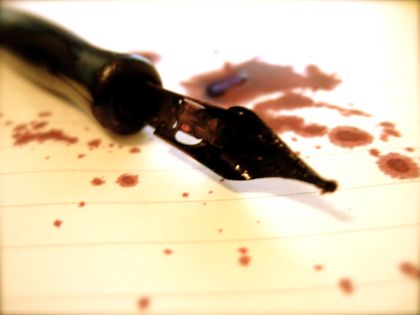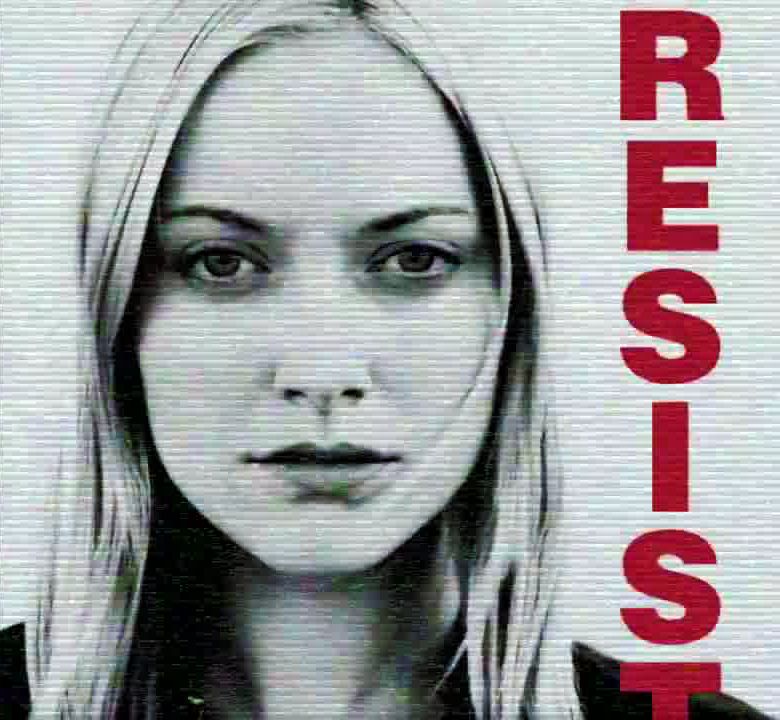
Courtesy Floating Robes
“Apropos of nothing,” asks one person, “what’s the name of the mental disorder/condition where a person thinks his or her art/work is never good enough?”
The immediate response from the other is, “…being an artist?”
It pretty much is a mental disorder, as it fucks with your brain almost constantly. It can interfere with your concentration and focus, rob you of confidence, and point out all of the flaws in your work while offering no means to correct or improve it. It behaves like a mental disorder, but it really isn’t. It just means that you, the artist, know your work can be better, and you want it to be better so it blows people away.
But since it behaves like a disorder, let’s treat it like one; instead of ignoring it or just throwing drugs at it (though they can help, and in this case, we’re talking about stuff like booze for the most part), let’s shine a light on it. Mental disorders are like obstacles in a darkened room: If you don’t turn on the lights, they’re going to trip you up and cause varying degrees of discomfort.
Hank Green pointed out recently that creation is terrifying. We are taking something out of the safety and security and privacy of our own imaginations and thrusting it bodily into the world. It has to stand on its own feet, and while you can cheer for it and support it from the wings, the work is the thing doing the singing and dancing. Some people will love it; some will hate it. Is this a reflection on you? No, not really. It’s a reflection on your work. There’s a difference, no matter what your head might be telling you.
But since our work is a part of us, born out of our imaginations and given life by our blood, sweat, and tears, that difference can seem negligible, maybe even non-existent. Instead of merely taking flight thanks to us, we can see ourselves as bound to the work, trying to fly along with it. We add our own expectations, hopes, fears, and doubts to it even as we tell it to take to the skies. In doing this, we bring both ourselves and the work down.
This is why I feel it’s important to keep in mind that we are not our works. Inasmuch as we are not our jobs, our furniture, our hobbies, or our khakis, we are not our works. While these things do contribute to our identities, they only truly define us if we allow them to. Just as our work has to stand on its own separate from us, we have to stand on our own separate from our work. You may paint breathtaking landscapes or reduce people to tears with your prose, but will that really be worth it if you’re insufferable to be around?
If you can accept that you are not your work, and that your work is separate from you and should be viewed differently from you, the fact that your work is ‘never good enough’ should become less crippling.
Here’s the other big thing that will pants this notion like crazy: your work is good enough.
Now, I don’t mean that first drafts and initial sketches are necessarily good enough for public consumption. I know for a fact most of my first drafts are shit. What I mean is, your work is good enough that you want to make it in the first place.
If you can get past the initial idea stage to the point that you’re creating a work of art, it’s good enough in that regard. It’s good enough if you keep working on it no matter how hectic the dayjob gets, how much you hate your boss, how many errands you have to run, and how many of your kids or pets get sick on the carpet. It’s good enough if you want to improve it. It’s good enough if you’re eager to show it off to other people even as you’re biting your nails in abject terror over their reactions.
Paradoxical, isn’t it? Your work is good enough if it’s never good enough.
If we can be mindful of the facts that our work is not a reflection of ourselves, and that it’s good enough for us to keep working on and futzing over, we can overcome the doubt that undercuts and cripples us. I say “we” because I suffer from this, too. Mindfulness of this nature is, in essence, a lot like writing and other forms of art: it takes dedication, practice, and work. And we’re not always going to get it right. Ever stub your toe on something in a brightly-lit room? It’s kind of like that. But at least the light is on and you can see what happened; you can avoid doing the same in the future if you’re aware of it.
It doesn’t really matter if you mess up; what matters is, keep trying until you don’t.




